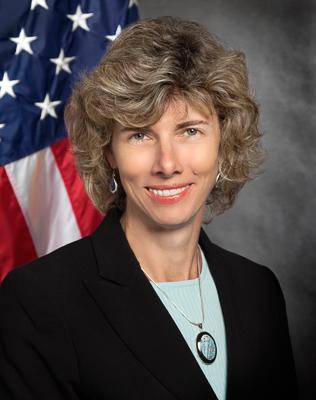The Elliott School of International Affairs is turning to a government agency official to fill a faculty position for the second time this year.
The chair of the U.S. Nuclear Regulatory Commission, Allison Macfarlane, is the second big name to land a teaching position in the Elliott School, following the former chair of the National Intelligence Council. She will take over the Center for International Science and Technology Policy and the school’s master’s program in the same field.
Macfarlane has led the federal agency since 2012, but said in an interview that “academia has always been my home.” She said she hopes to work with faculty members across schools, including those in the energy law program, but will wait until she is settled in before determining which areas in the policy center she wants to grow.
“I think I’m going to have more of an energy focus and more of a nuclear focus,” she said. “There are a lot of folks around the University that I want to collaborate with and make this a good interdisciplinary center.”
Macfarlane will also teach a seminar-style graduate course, “Energy and Society,” in the spring. She called the topic one of the world’s most pressing issues.
“I’m looking forward to training a new cohort of young people and doing research and expanding my own horizons,” she said.
Research on nuclear weapons and energy are not new to the Elliott School. Both the Institute for Security and Conflict Studies and the Sigur Center for Asian Studies are working on projects in those topics, and a new graduate program in nuclear energy policy began this fall.
The Elliott School has held more than 100 events related to energy studies since the launch of the Nuclear Policy Talks series in 2009. Macfarlane presented at the school as a part of the project in spring 2012.
Henry Hertzfeld, the deputy director of the Center for International Science and Technology Policy, said Macfarlane’s background in nuclear energy will help expand the center, which had been chaired by the head of the Space Policy Institute, Scott Pace.
“Her expertise in nuclear regulation and nuclear security, both very sensitive and very interesting topics, are something that we haven’t done here before,” Hertzfeld said. “She offers a different perspective, another type of expertise in the field.”
The international affairs school is known for attracting names from top D.C. think tanks and other policy forums, and at least four recent hires across GW have come from government agencies.
Kathy Merrigan, the former deputy secretary for the Department of Agriculture, was named the executive director of the University’s Sustainability Initiative in February, and Esther Brimmer, a former assistant secretary of state, joined the Elliott School faculty last summer.
A professor-turned-federal-appointee, Christopher Kojm ended his term as the chair of the National Intelligence Council and returned to teach at Elliott in August.
Kojm worked on the Obama administration transition team in 2008 before he was appointed to the NIC for five years. He said he was happy to return to teaching students about policy, rather than creating the policy himself.
“I also worked with some of the very most capable analysts in the United States government, and seeing how they carried out their work,” Kojm said. “Trying to impart those examples into the academic setting I think is very important.”







